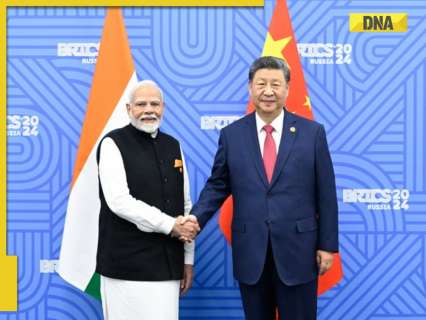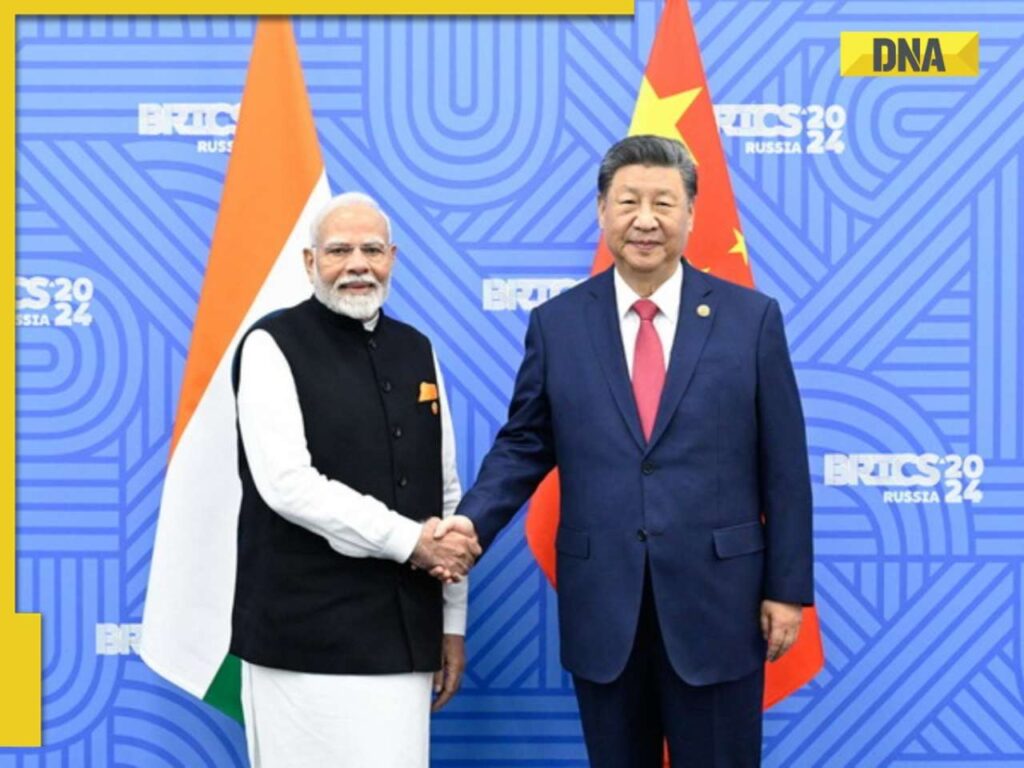
In his first public speech, after US President Donald Trump “Strike Global Tariffs”, especially focusing on China with 104% on Chinese exports to America, Xi Jinping urged to create a community with a joint future with neighboring countries.
Narendra Modi with Xi Jinping
Chinese President Xi Jinping on Wednesday pledged to strengthen strategic relations with the neighboring countries, “properly” governing the differences and strengthening the links with the Trump’s chain when the Trump administration grew a tariff war with Beijing. In his first public speech, after US President Donald Trump “Strike Global Tariffs”, especially focusing on China with 104 percent on Chinese exports to America, XI called to create a community from a joint future with neighboring countries and seeking to open a new soil to work in China.
XI made up with the remarks at the Central High -Level Conference related to neighboring countries. Senior officials from the ruling Communist Party took part in the two -day conference on Tuesday and Wednesday. In his speech, the XI systematically summarized the achievements and experience of working in the neighborhood of China in a new era, scientifically analyzed the current situation and outlined the goals, tasks, ideas and measures for the next stage, reports the state agency Xinhua.
Chinese Prime Minister Lee Ten, who presided over the meeting, emphasized the need to carefully realize the spirit of an important speech and honestly perform the tasks in the work related to the neighboring countries. The conference emphasized that the large territory of China and the long borders made its neighborhood a vital basis for national development and prosperity, the key front for the protection of national security, the priority sphere in the general diplomacy of the country and an important connection in the creation of a community with a joint future for humanity.
The conference called on the neighboring regions through the global perspective and strengthen the sense of responsibility and mission in promoting the work on China’s neighborhood. An additional 50 percent tariff of Trump, taking common charges against Chinese exports to 104 percent, began on Wednesday.
China has promised to fight to the end when Trump has taken tariffs. However, the country does not yet respond to an additional 50 percent tariffs by the United States. China has steadily reworks its policy in the neighborhood as relations with the US are becoming more intense.
According to the reports, XI is expected to visit Vietnam, Malaysia and Cambodia, all the important neighbors of China. China recently twisted border tensions with India and sought to improve their relationships with other neighbors such as Japan and South Korea, attracting tough times under Trump’s commerce and strategic fronts.
Relationships in India and China, which have been frozen for more than four years over the military confrontation of the Eastern Lada, showed signs of improvement after XI met with Prime Minister Narendra Modi in Russia last October.
Since then, both countries have held a number of high -level meetings to normalize relations. Recently, in China, trading negotiations with South Korea and Japan, the first economic dialogue between the three countries in five years to discuss the regional promotion of trade when the countries that were secured for Trump tariffs.
Trade ministers of the three countries discussed free trade agreements to promote regional and global trade. China is also increasing trade relations with several other countries in the neighborhood under the Belt and Road initiative (BRI).
Many Chinese observers have warned a competitive trading character between China and its Asian neighbors, as all the economies managed by export, and the US are one of their key markets-can interfere with Beijing’s efforts to rally them, a dilemma that is even more complex territorial disputes, both on Earth.
Experts urged China to focus on expanding their domestic demand and increase the commercial attractiveness of foreign products, thereby mitigating the existing tension of geo-economics with neighbors and better resist the problems caused by Trump, reports the morning post in the South China morning in Hong Kong.
Wang Ives, Director of the Institute of International Affairs of the University of Remmin in Beijing, said that the comments showed that Beijing’s desire to deepen his neighbors in his yard, which was part of the broader tendency of “regionalization”. SI comments showed that China is “preparing for the US interchange,” Van said. Dylan Lokh, Associate Professor Professor at Nanyan’s Foreign Policy Technology, said, while the neighborhood diplomacy was the sphere to which China drew attention to.
“This attention is not the result only because of the US and China relations, and in fact it precedes the majority of the tension that we see between the two countries. The competition has now introduced additional dynamics for sure,” he said. “I believe that China will add additional relevance to its grilling the neighborhood, because it is some of the countries most affected by Trump tariffs,” Dylan said.
“One of the key messages that Beijing seeks to send is that it will defend the rules of the international order. Beijing also wants to expose its economic power and stability and show how it can serve as a redemption against protectionism,” he said. “I believe that China will push the story that Chinese markets will continue (their) reform and openness, which will serve as a very sharp contrast with the approach of the current Trump administration,” he said.
(With the exception of headlines, this story was not edited by DNA staff and published with PTI.)


